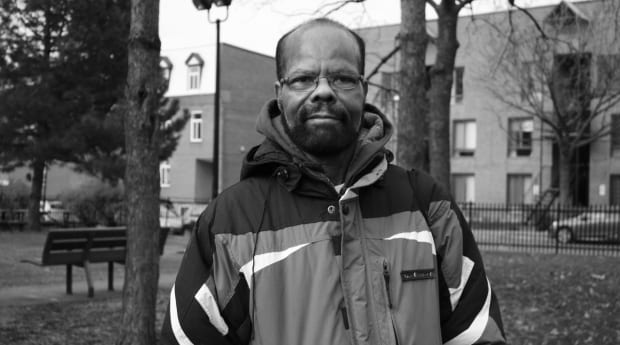Despite a steady stream of cold rain, members of Montreal’s queer community, literati, and representatives of the local St Vincent and the Grenadines Association packed Paragraphe Bookstore on Nov 12 for the launch of Nigel Thomas’ new book, No Safeguards.
The novel, which was nominated for the Hugh MacLennan Prize for Fiction, chronicles the coming-of-age stories of two brothers born into a fundamentalist Christian family in St Vincent. After their mother moves to Canada to escape the abuse her preacher husband inflicts in the name of religion, the brothers live with their wealthy, intellectual grandmother.
In their teens, they are brought to Montreal to join their mother, where both struggle to adapt and to come to terms with their sexuality.
The novel is narrated by the older brother, Jay, and focuses on how the younger and more vulnerable Paul is impacted by the move. It is the first in a planned trilogy; the two other tomes intending to explore the brothers’ love lives as adults.
No Safeguards draws on Thomas’ experiences growing up as a gay man in St Vincent, where anal sex is still punished with 10 years imprisonment. An incident recounted in the book, where a gay couple’s house is surrounded, the men beaten, and the home burned to the ground, is drawn from Thomas’ early childhood memories.
“One night I heard a lot of noise, running and shouting,” he recalls. “The next morning I discovered that this was because of a gay chap who had a date in the village. A man had asked him to meet in the banana field . . . When he took off his clothes, other guys came out and began beating him. They chased him through the field . . . until someone came to the rescue.”
According to Thomas, violence was a common occurrence and, as an effeminate boy, he was often its target.
“Effeminacy and homosexuality were considered to be one and the same thing,” he says. “People would literally hit me and say ‘Act like a man,’ or mock my voice and call me names.”
Thomas realized he was gay at age 16 but stayed in the closet. “I was afraid,” he says. “I also did believe that it was sinful. I was raised on the fundamentalist end of Methodism.”
When Thomas came to Canada in 1968 at age 21 he was engaged to marry. However, by the end of 1969, he says he began “exploring gay sex.”
He entered his first longterm relationship in the 1980s, but did not publicly come out until a series of homophobic articles appeared in the Vincentian press in 1994.
“No gay person in St Vincent felt comfortable challenging these horrible ideas — linking us to bestiality and pedophilia. I said, you know what, I better do it,” he says.
Thomas wrote a provocative letter to the offending papers, and his response was published as an article.
“Of course there was virulent feedback. I ended up duelling with the archbishop of the Windward Islands,” he says, referring to a heated debate between himself and high-profile locals that made headlines until 2002.
Thomas was also criticized for his openness by Montreal’s Vincentian community. Following an interview with the Montreal Gazette in 2000, where he spoke about black people in the LGBT community, he received angry phone calls.
“Some people said that they would burn my books,” he recalls.
Later in life, Thomas joined the St Vincent and the Grenadines Association of Montreal.
“I joined to claim my space as a gay Vincentian,” he explains. “And to my great astonishment, people were quite happy to have me.”
Although, according to Thomas, the community in Montreal has become more accepting, being gay is still dangerous for most people back home.
Still, there is hope for the future. One bookstore on the island now sells Thomas’ books. There is a secret gay association. While local gay activists use pseudonyms, allies openly write and speak about LGBT rights.
“They are glad that I am open because they can cite me verbatim,” Thomas says.
No Safeguards
Nigel Thomas
Guernica Editions

 Why you can trust Xtra
Why you can trust Xtra


